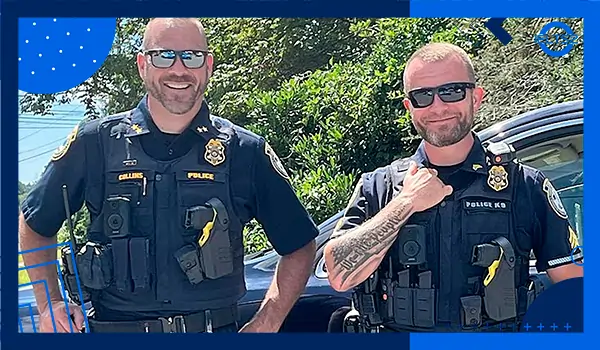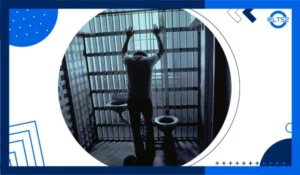نمونه سوالات اسپیکینگ آیلتس درباره نیروی پلیس (پارت 1 2 3)
در این بخش بیش از 20 مورد از نمونه سوالات اسپیکینگ آیلتس نمره 9 درباره “موضوع نیروی پلیس” را با هم میبینیم. این مجموعه از آخرین سوالات گزارش شده از سنترهای برگزار کننده آیلتس در ایران و خارج از کشور مربوط به پارت 1، 2 و 3 می باشند و شانس تکرار آن ها در آینده بالاست. در ادامه مطلب همچنین نکات گرامری، لغات و دلایل دریافت نمره 9 را به طور مشخص توضیح داده ایم تا راهنمایی برای علاقمندان باشد. 1000 نمونه سوالات اسپیکینگ آیلتس با جواب PDF پارت 1 2 3 پیشنهاد بعدی ما به شما عزیزان است.
نمونه سوالات اسپیکینگ آیلتس درباره موضوع نیروی پلیس (پارت 1)
1. Do you often see police officers in your area?
Yes, I frequently see police officers patrolling my neighborhood. They usually walk or drive around to ensure everything is in order. Their presence provides a strong sense of security for residents. In fact, I think their visibility alone discourages petty crimes. It’s reassuring to know that help is nearby if something goes wrong. While I haven’t had any direct interaction with them, knowing they’re around makes me feel safer. Their professionalism is quite evident from the way they conduct themselves.
2. What do police officers do in your country?
In my country, police officers have multiple responsibilities. They maintain law and order, investigate crimes, manage traffic, and respond to emergencies. Apart from that, they also engage with the community to build trust and encourage cooperation. They attend schools and give talks on safety and crime prevention. It’s a demanding job that requires discipline, courage, and a strong sense of justice. While challenges like corruption exist, many officers work hard with integrity to protect citizens’ rights.
3. Have you ever talked to a police officer?
Yes, I once had a brief conversation with a police officer when I lost my wallet. He was very professional and helpful, guiding me through the process of reporting it. He even gave me advice on how to avoid similar situations in the future. I was impressed by how calm and understanding he was. It made me realize that police work involves a lot of empathy and communication, not just enforcing laws. It was a positive experience overall.
4. Do you think police officers are respected in your country?
Generally, yes. Most people in my country respect police officers for the risks they take and the role they play in society. However, the level of respect can vary depending on individual experiences and media reports. Unfortunately, cases of misconduct can damage public trust. Still, many citizens admire those officers who serve with honesty and dedication. Trust is gradually being rebuilt through community engagement and reforms. Respect, I believe, should be earned and not just assumed.
5. Would you like to become a police officer?
Honestly, I admire the profession, but I don’t see myself in that role. Being a police officer requires physical endurance, emotional resilience, and the ability to make quick decisions under pressure. It’s not just about catching criminals; it’s about maintaining peace and protecting the vulnerable. While I respect those who choose this path, I prefer a less risky and more predictable career. That said, I think working in support roles like forensic analysis could be fascinating.
6. What qualities should a good police officer have?
A good police officer must be honest, fair, and emotionally intelligent. They need to be calm under pressure and make decisions quickly but thoughtfully. Strong communication skills are vital for resolving conflicts peacefully. Physical fitness is important, but mental resilience is even more crucial. Empathy helps in dealing with victims, while assertiveness is necessary when confronting criminals. Most importantly, they must uphold the law without bias, ensuring justice is served impartially.
7. Do you think police work is dangerous?
Absolutely. Police officers often face unpredictable and potentially life-threatening situations. They may have to deal with armed criminals, violent protests, or emergencies like fires and accidents. Even during routine traffic stops, risks exist. That’s why they undergo rigorous training to handle pressure and respond appropriately. Despite these dangers, many officers remain committed to their duties. Their bravery is commendable, and society owes them gratitude for putting their lives on the line every day.
8. How do the police help people?
Police help people in various ways beyond just arresting criminals. They manage traffic, provide assistance during natural disasters, respond to emergencies, and offer protection during public events. They also work on crime prevention by educating communities and building public awareness. In many cases, police officers provide emotional support to victims of crime. Their role is much broader than law enforcement; they act as protectors, guides, and sometimes even mediators in conflicts.
9. Are there female police officers in your country?
Yes, there are many female police officers in my country, and their numbers are increasing. They work in various departments, from traffic control to criminal investigation. Female officers often bring a different perspective to policing, especially in dealing with sensitive cases like domestic violence. They’re known for being patient and empathetic, qualities that are invaluable in law enforcement. Efforts are being made to encourage more women to join the force, promoting gender equality and diversity.
10. How has the role of the police changed in recent years?
The role of the police has evolved significantly. In addition to crime control, they now focus more on community policing, mental health crises, and cybercrime. Technology plays a huge role, too—officers now use body cameras, drones, and data analysis to enhance their effectiveness. Public expectations have shifted as well; transparency and accountability are now priorities. As society becomes more complex, the police must adapt to new challenges while maintaining public trust.
نمونه سوالات اسپیکینگ آیلتس درباره موضوع نیروی پلیس (پارت 2)
Describe a time when you saw a police officer helping someone. You should say:
When and where it happened
Who the officer was helping
What the officer did
And explain how you felt about it
Band 9 Answer:
A few months ago, I witnessed a heartwarming act by a police officer while I was waiting for a bus in the city center. It was around 7 p.m., and the streets were quite busy with people returning home from work. Suddenly, an elderly man, probably in his late seventies, seemed disoriented and was struggling to cross the road. The traffic was heavy, and he looked confused and frightened.
Just then, a nearby police officer noticed the situation and immediately stepped in. He quickly stopped the cars by signaling with his hands and gently approached the old man. He spoke to him with a calm, reassuring tone and offered his arm for support. After helping him cross the street safely, he didn’t just walk away. Instead, he asked the man if he needed further assistance. The man mentioned that he had forgotten how to get home. Without hesitation, the officer called a patrol car, stayed with the man, and even gave him water while waiting.
What struck me most was the officer’s kindness and patience. He wasn’t in a hurry or annoyed by the interruption. On the contrary, he treated the elderly man with genuine respect and care. It made me realize that police work isn’t just about law enforcement or chasing criminals; it’s also about serving the community and protecting the vulnerable.
This simple act of compassion left a deep impression on me. In a world where police officers are often criticized, this moment reminded me that there are many who truly care about people and are willing to go above and beyond. It strengthened my respect for the profession and highlighted how powerful small acts of kindness can be.

نمونه سوالات اسپیکینگ آیلتس درباره موضوع نیروی پلیس (پارت 3)
1. What are the main responsibilities of the police?
Police officers are responsible for maintaining public safety, enforcing laws, and preventing crime. Their duties include patrolling neighborhoods, investigating criminal activities, responding to emergencies, and ensuring order during public gatherings. They also work closely with communities to build trust and encourage public cooperation. In some cases, they handle non-criminal issues like lost property or civil disputes. Their role is multifaceted, requiring both physical readiness and emotional intelligence. With the rise of cybercrime and social unrest, their responsibilities are broader than ever.
2. How can police build trust with the community?
Trust can be built through transparency, accountability, and consistent community engagement. When officers treat people with fairness and respect, public perception improves. Initiatives like neighborhood patrols, public workshops, and open forums help bridge the gap between the police and civilians. Listening to community concerns and responding with action demonstrates a genuine commitment to service. Trust is also reinforced when misconduct is handled promptly. Overall, humanizing the badge by showing empathy and professionalism builds long-lasting community trust.
3. Do you think police should carry guns?
This is a complex issue. In some countries, arming police is necessary due to high crime rates or terrorism threats. Guns can act as deterrents and ensure officers’ safety. However, they also increase the risk of fatal outcomes if misused. In low-crime societies, unarmed policing with emphasis on de-escalation can be more effective. Ultimately, it depends on context, training, and strict oversight. The focus should be on equipping officers with the right tools and judgment, not just weapons.
4. What challenges do police officers face today?
Police officers today face numerous challenges, including rising crime complexity, public scrutiny, and mental health issues. They deal with cybercrime, terrorism, and increasing societal tensions. On top of that, officers often work long hours under stressful conditions, which can impact their mental well-being. They must strike a balance between enforcing laws and protecting human rights. With social media amplifying every action, they’re under constant observation. Navigating these pressures while maintaining professionalism is incredibly demanding.
5. Should the police be involved in social issues like homelessness or drug addiction?
Yes, but with caution. While the police are not social workers, they often encounter people affected by these issues. Collaborating with healthcare professionals and social services is crucial. Instead of arresting individuals for minor offenses related to homelessness or addiction, officers should refer them to support systems. This approach is more humane and effective. Police involvement should focus on crisis intervention and ensuring safety while allowing specialized agencies to handle rehabilitation and long-term care.
6. How do the media influence people’s opinions of the police?
Media plays a powerful role in shaping public perception of the police. News outlets often highlight incidents of police misconduct, which can damage the public’s trust. On the other hand, positive stories are sometimes underreported. Social media further amplifies both narratives, allowing videos to go viral and influence opinions rapidly. While media coverage can increase transparency and accountability, it can also create bias if not presented objectively. Responsible journalism is essential to ensure a fair and balanced view of police actions.
7. In what ways can technology help the police?
Technology has revolutionized modern policing. Tools like CCTV, body cameras, facial recognition software, and data analytics help officers solve crimes more efficiently and transparently. Mobile apps allow the public to report incidents quickly, improving response times. Drones and AI are also used for surveillance and crowd control. Moreover, databases help track criminal behavior across regions. However, with these advancements come concerns about privacy and misuse. Thus, technological tools should be used responsibly under strict ethical guidelines.
8. Should the police focus more on preventing crime or solving it?
Prevention should be the primary focus because it addresses the root causes of crime. By increasing patrols, engaging with communities, and offering educational programs, police can deter criminal activity before it happens. That said, solving crimes is equally important for maintaining justice and accountability. A balanced approach is ideal—investing in proactive strategies while maintaining strong investigative capabilities. Ultimately, prevention reduces the overall burden on the justice system and builds a safer, more trusting society.
9. How important is diversity in the police force?
Diversity is crucial in building trust and ensuring fair treatment for all communities. A police force that reflects the population it serves is more likely to understand cultural differences and communicate effectively. It also reduces bias and improves decision-making by incorporating varied perspectives. Moreover, when people see officers who look like them and share their backgrounds, they feel more comfortable cooperating. Promoting gender, ethnic, and cultural diversity enhances legitimacy and helps in conflict resolution.
10. What kind of training should police officers receive?
Police officers should undergo extensive training that covers both physical and psychological aspects. This includes self-defense, firearms, and emergency response, but also conflict resolution, de-escalation techniques, and cultural sensitivity. Mental health training is vital for handling crises compassionately. Ethical training reinforces the importance of integrity and accountability. Additionally, continuous education is necessary to keep up with evolving threats like cybercrime. A well-rounded training program ensures that officers are prepared to serve with competence and compassion.
عوامل مؤثر در کسب نمره ۹ در پاسخها درباره موضوع نیروی پلیس
در زیر موارد مربوط به پاسخ سوالات اسپیکینگ موضوع نیروی پلیس مورد بررسی قرار می گیرد:
1. واژگان سطح بالا (Lexical Resource)
پاسخها شامل واژگان پیشرفته، دقیق و متناسب با موضوع هستند:
patrolling, law enforcement, misconduct, cybercrime, surveillance, de-escalation, accountability
استفاده از collocations صحیح مانند: build trust, enforce the law, respond to emergencies, tackle crime, public perception
2. گرامر متنوع و پیچیده درباره موضوع نبروی پلیس (Grammatical Range and Accuracy)
در پاسخها به سوالات اسپیکینگ موضوع نیروی پلیس از ساختارهای گرامری پیشرفته استفاده شده است:
شرطی نوع دوم و سوم:
If the police were trained better, fewer incidents would occur.مجهول:
The man was helped across the street by the officer.افعال مدال در گذشته و حال:
Police should have acted sooner. / Officers must respond quickly.ساختارهای وابسته و relative clauses:
Officers who engage with communities tend to be more effective.
3. روانی و انسجام (Fluency and Coherence)
پاسخها ساختاری منطقی دارند و از واژگان انسجامدهنده (linking devices) به خوبی استفاده شده است:
On the other hand, However, Therefore, Moreover, That said, Ultimately
استفاده از topic sentence و concluding sentence در پاسخهای پارت 3
4. توسعه کامل پاسخ ها درباره موضوع نیروی پلیس (Fully Developed Answers)
در همه بخشها، پاسخها با جزئیات کافی ارائه شدهاند:
ذکر مثالهای واقعی یا فرضی
توضیح نتایج یا اهمیت موضوع
استفاده از توصیف و تحلیل، نه فقط گزارش ساده
5. میزان طبیعی بودن و لحن گفتاری (Natural Tone and Intonation)
پاسخها طبیعی و گفتاری هستند و از اصطلاحات خشک آکادمیک پرهیز شده:
Honestly, I admire the profession…
It made me realize…
What struck me most was…
مطالبی برای مطالعه بیشتر
لغات آیلتس موضوع پلیس (Police)
حضور پلیس در جامعه (Advantages & Disadvantages Essay)
حضور زنان در نیروهای نظامی و پلیس (Discuss both views)
دورکاری و کاهش بهرهوری نیروی کار (Discuss both views)
معیار استخدام نیروی کار: نوآوری یا کارگروهی؟
تعیین سطح رایگان اسپیکینگ ❤️
نمونه سوالات اسپیکینگ آیلتس درباره “موضوع نیروی پلیس” پارت 1 2 3 را به همراه سمپل های نمره 9 آن ها با هم دیدیم. در ادامه نمونه سوالات دسته بندی شده اسپیکینگ آیلتس پیشنهاد آخر ما به دوستان گرامی هست. این نمونه سوالات اسپکینگ از پرتکرار ترین تاپیک های این بخش و همچنین جدیدترین موضوعات می باشند. این مجموعه توسط یکی از سایت های معتبر و فعال آیلتس تنظیم شده است. همچنین برای تعیین سطح و تعیین رایگان نمره اسپیکینگ و دریافت جدید ترین سمپل های نمره 9 در کانال تلگرام اسپیکینگ ما همراه باشید و به ادمین برای تعیین نمره اطلاع دهید.






